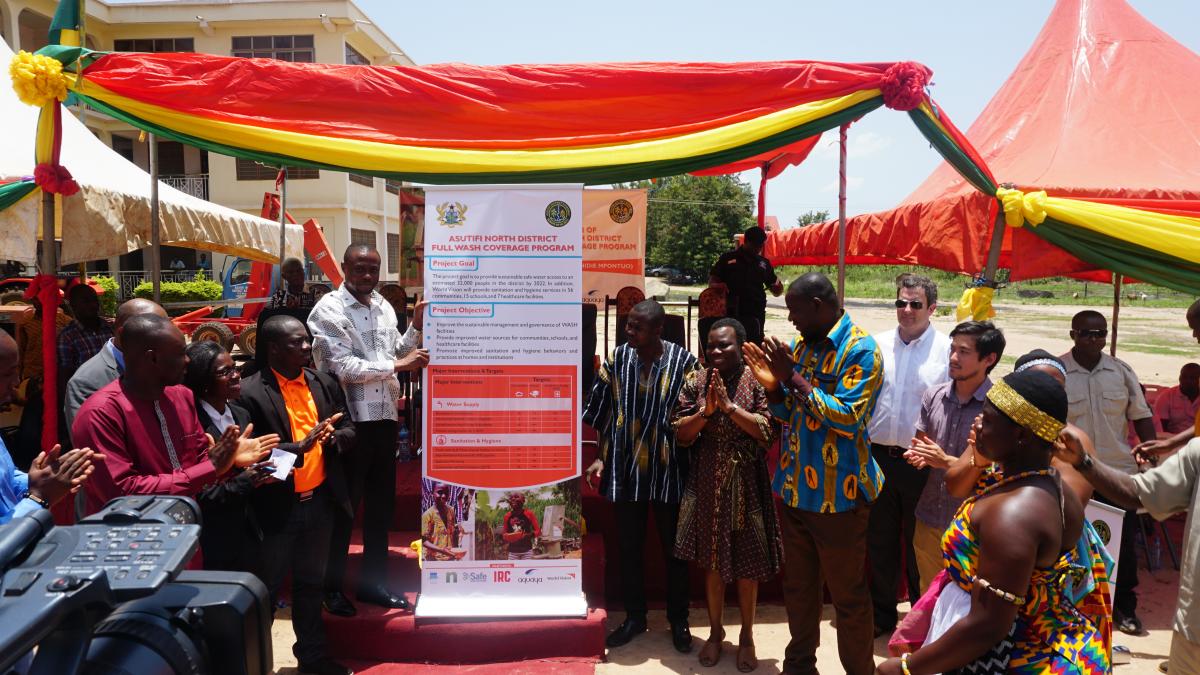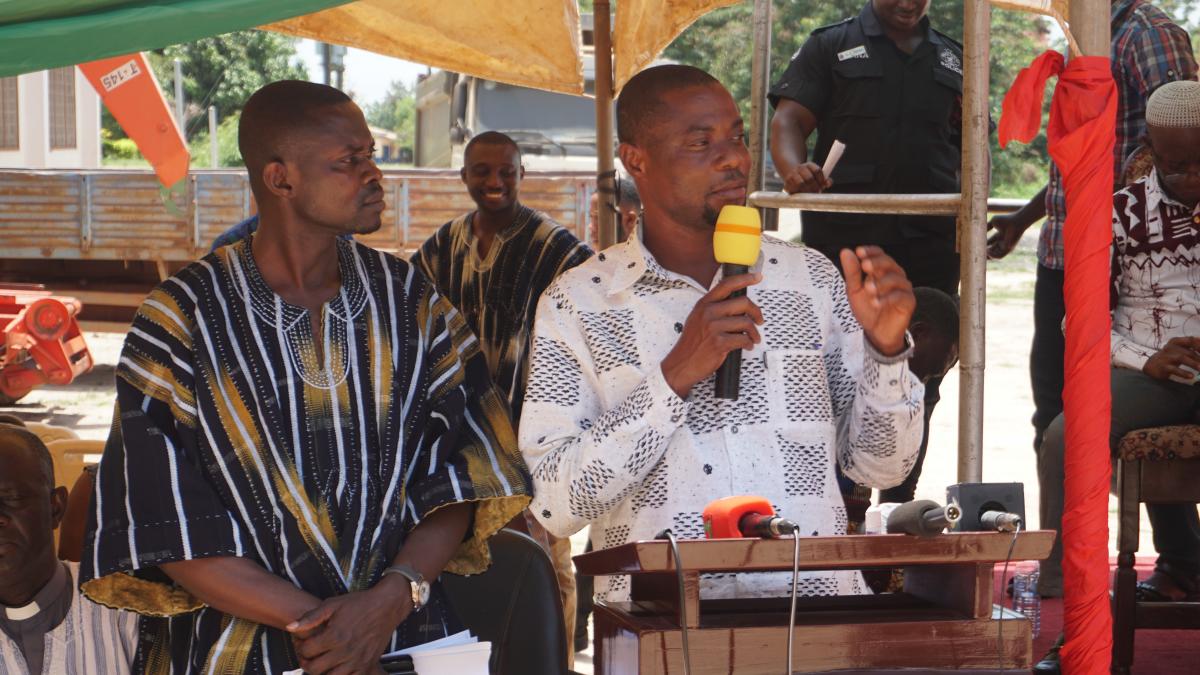A four-year investment phase targets communities with no water service at all and those with limited water service.
Published on: 03/05/2019
On 26th March 2019, Kenyasi, Ghana - the Asutifi North District Assembly hosted a grand ministerial launch of the investment phase of the Asutifi North District Ahonedia Mpumtuo (ANAM) initiative - a huge step in the unique partnership with a strategic master plan to achieve a common vision for universal access to safe water, sanitation and hygiene (WASH) services for everyone in the district by 2030.
Unveiling the symbolic ANAM investment phase with a pull-up banner to signify the official launch, the Ahafo Regional Minister recalled, in his keynote address the 16 March, 2018 launch of the ANAM initiative by his predecessor, which aimed at achieving full coverage for WASH services in the district in line with Sustainable Development Goal 6 (SDG 6).

The Minister described the event as a huge step forward and the day as "historic because we are launching the first investment phase in line with the master plan to achieve full coverage of water and sanitation by 2030 in Asutifi North District." The Minister commended Conrad N. Hilton Foundation and Grantees on behalf of the Government of Ghana, and entreated all "to work hard, partner strongly and collaborate to ensure this investment gets to the most vulnerable in the district."
Robel Lambisso, WASH Technical Program Manager of World Vision International (WVI) in Ghana gave an overview of the investment phase, stating that the total estimated budget is US$ 3.5 million, of which US$ 3 million is for water interventions and US$ 0.5 million for sanitation and hygiene in the district. He stated, "the goal is to provide sustainable safe water access to an estimated 32,000 people in 56 communities and institutions in the district at least at the basic level by 2022."
Robel indicated that the four-year investment phase targets communities with no water service at all and those with limited water service. With the intent to improve:
Explaining the key objective areas for this phase, Robel stated that World Vision International would focus on improving the sustainable management and governance of WASH facilities by:
According to the technical program manager, WVI will improve water sources for the target communities, schools, and healthcare facilities. This will be through the provision of:
Finally, sanitation and hygiene services will be provided in rural communities, schools and healthcare facilities. Robel specified that WVI will promote improved sanitation and hygiene behaviours and practices at homes and institutions by:
"In the first year, starting in 2019 we will get a team on the ground in the district, establish facilitation structures required for implementation of CLTS, identify intervention priorities in consultation with the District Assembly and start implementation of CLTS in 10 communities, borehole drilling in 20 communities and 5 schools," Robel concluded.
Joseph Ampadu-Boakye of Safe Water Network stated that they will provide 3 small town water systems in 3 communities in the district within the investment phase. The partnership will explore market-based solutions like the small water enterprises for mechanised systems, improving revenue at point sources (handpump)-metering flow and vendors working with WSMTs.
Explaining the initiative to the dignitaries, Vida Duti, IRC Country Director stated that the Asutifi North District Ahonedia Mpumtuo (ANAM) and its partners developed a strategic master plan to achieve a common vision for universal access to safe water, sanitation and hygiene services for all people in the district by 2030. She recognised the different partners and outlined their unique roles, stating, "It is refreshing to see the District Assembly, traditional authority, as well as all ANAM partners demonstrating collective resolve in tackling aspects of their assigned roles in the master plan – focused on strengthening local systems to deliver safe and sustainable water, sanitation and hygiene services for everyone and ensuring that no one is left behind."
Hon. Anthony Mensah, the District Chief Executive, summed up the impression of the district stakeholders when he stated that "with this level of energy among partners and stakeholders and with the continuous commitment and support from our external well-wishers, we are very positive that we are on our way to achieving the targets set in the master plan well ahead of the SDG timelines."
